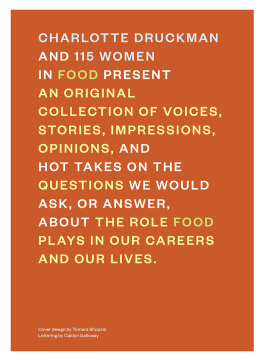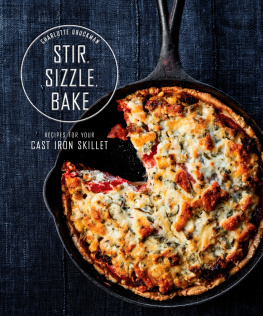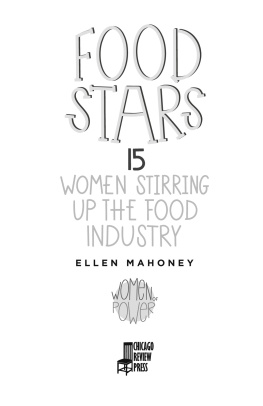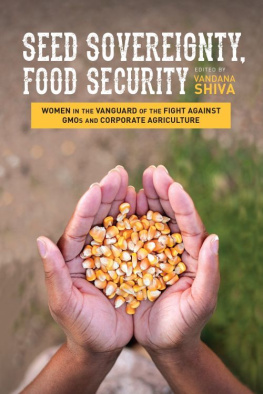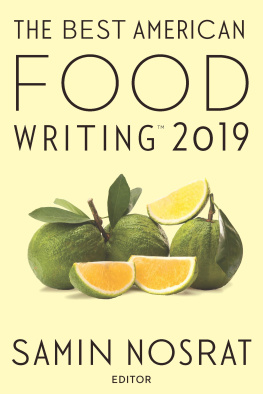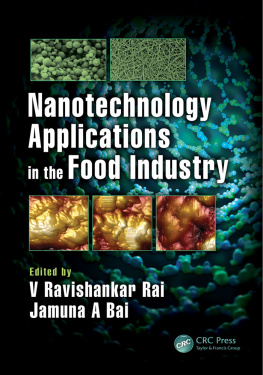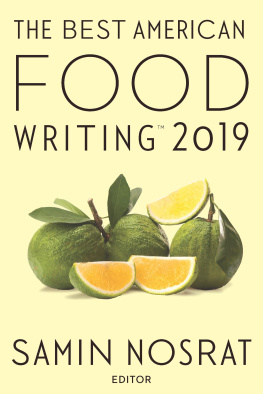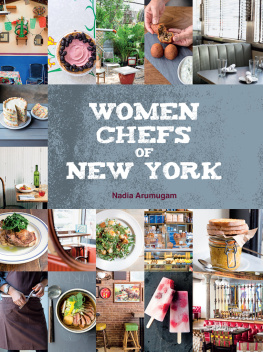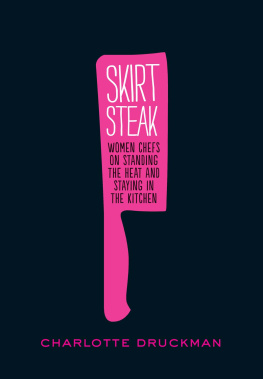Contents
Guide
Page List
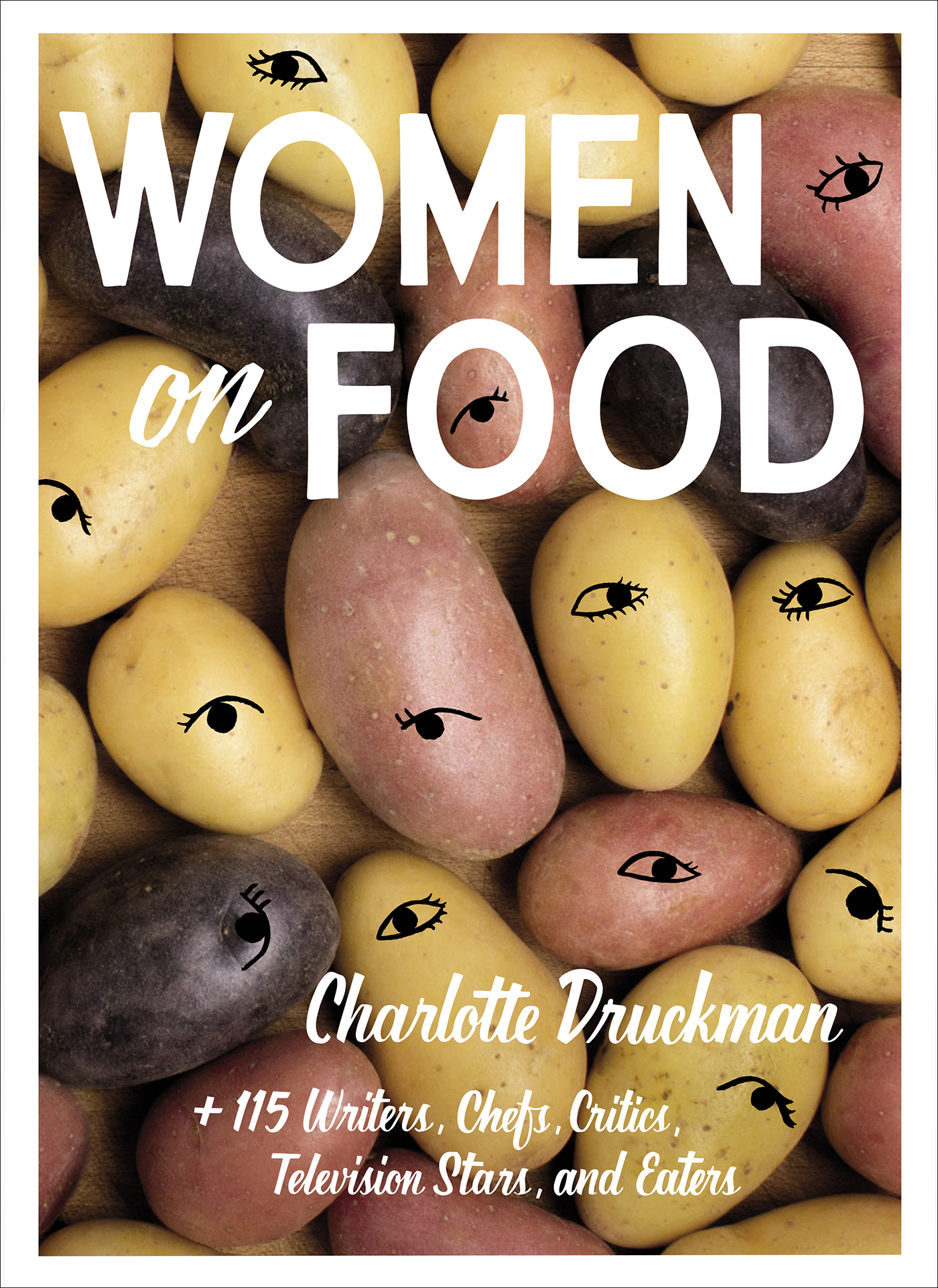

for all of us
Copyright 2019 Charlotte Druckman
Comfort Dishes copyright 2019 Carolita Johnson
Fathers Day copyright 2019 Priya Krishna
Cover 2019 Abrams
Published in 2019 by Abrams Press, an imprint of ABRAMS. All rights reserved. No portion of this book may be reproduced, stored in a retrieval system, or transmitted in any form or by any means, mechanical, electronic, photocopying, recording, or otherwise, without written permission from the publisher.
Library of Congress Control Number: 2018958809
ISBN: 9781-419736353
eISBN: 9781-683356813
Abrams books are available at special discounts when purchased in quantity for premiums and promotions as well as fundraising or educational use. Special editions can also be created to specification. For details, contact specialsales@abramsbooks.com or the address below.
Abrams Press is a registered trademark of Harry N. Abrams, Inc.

ABRAMS The Art of Books
195 Broadway, New York, NY 10007
abramsbooks.com
INTRODUCTION
So many roads and so much opinion
So much shit to give in, give in to
So many rules and so much opinion
So much bullshit but we wont give in
Le Tigre, Hot Topic
Dear (Potential) Reader,
This is where Im supposed to tell you what youre getting into.
What youre getting into is an anthology about women inand onfood. That means women who work in or around food in some capacity, and what they think about that... and what they think about what you expect them to think about that.
Because when you think about women in the food world, you probably have some ideas about who or what youre going to find. Women have a long history in the kitchen and of writing about such matters. But how much freedom have we had in that? And how much freedom have we had in how its been parsed and packaged?
What does it say about us that a woman who speaks the truth of her experience should be dismissed for telling more than the world feels comfortable with hearing? Joyce Maynard asked in September 2018, in her essay for the New York Times Book Review. You could apply this to any experience and, beyond that, to any woman who does more with her medium, or in her profession, than the world feels comfortable with.
Women are capable of, and have been doing more inand onfood than we have been given credit for or seemingly been allowed or encouraged to share. And the ways in which we have been allowed or encouraged to share whatever has been codified as acceptable have been limited.
What if we could speak the truth, and what if we could speak it completely, as ourselves? What if we could be analytical, furious, funny, serious, sad, harsh, silly, challenging, old-fashioned, avant-garde, creative, macho, pensive, unforgiving, unforgivable, opinionated, neutral, just plain weird, or all of the above? What if we could revisit some of the accepted tropestake another, different look? What if we could talk about what its like, really, to work in the food industry or food media, to get a meal on the table, or feed a community? And what if we could write about that without having to match the format of or adhere to a particular genre or style? Whose stories would we tell? How would we choose to tell them?
These are the questions I asked myself and the upwards of one hundred women I recruited to contribute to this book. Together, weve answered them in all kinds of ways.
I told you this was an anthology. You probably have ideas about that, too. I did. I tend to think of anthologies as academic or boring, as pages and pages of essays. Sometimes thats exactly what you want to read and, the good news is, you have lots of options. But anthologies can be more than that, and they can offer readers a more varied experience. Maybe youre in the mood for an essay, or maybe youd just like a quick laugh, or maybe you want something a little more intimate and conversational. Maybe youre in search of a history lesson or a catharsis. Maybe you just want to hear from some people you havent heard from before.
This anthology has a healthy portion of original essays, all commissioned exclusively for this project. Most are prose, but as you will see, there are a few visual surprises thrown in. The contributors are all people I personally love to readtheir talent is unequivocal; their perspectives are unique and vital.
Its risky, you might be thinking, to create a from-scratch anthology. Usually, the essays have already been published elsewhere and deemed the most exemplary of their genre before theyre selected for what will then be sold as a best of compendium. Ive always worried that, not unlike institutionalized awards, these collections encourage conformity on the part of writers. I wanted to create a situation where there was no pressure to conform; where the work had been chosen before it was written.
Similarly, there is no prioritization of topics in this anthology. It frees things up structurally, allowing pieces to be placed together that might relate to each other in subtler ways. The result is an interweaving of multiple threads throughout the book and, what I was most excited by, an organic emergence of themes: motherhood, domesticity, and, in its many forms, the work of cooking come up a lot. Race, class, and cultural assimilation do, too. No one will be shocked to learn that sexism and feminism are everywhere in these pages. So is power, which is at the root of everything.
Serious. Thats what youre thinking now. This all sounds rather serious. What happened to the quick laugh option? Some of it is sobering. But a lot of it isntscouts honor! In addition to the essays, there are interviews with some of the people (in food) I most admirefrom different walks of culinary life and at different stages in their careers. Those conversations have been edited for your reading pleasure and ease. And to keep you entertainedand on your toesthere are unexpected outtakes and outbursts, and a powder keg of truth from a powerhouse of a chorus that tells it like it is, and how it should be.
I kind of like to think of it as a variety show, in book form, with me as your emcee.
So let me do a quick costume change, and Ill be right back with my pal Sadie Stein and some very important revelations about one of the most famous food writers ever.

JAMIE FELDMAR
Women.
ESTHER TSENG
Best female chef as a participation trophy.
THERESE NELSON
Women chefs. I appreciate the power of female energy, but its used far too often as an aside and not a qualifier. In 2018, I heard a well-known chef suggest that there arent more women in this work because its too hard and I think the suggestion that women lack the fortitude for this industry is still too closely embedded in the way we use the term.
ALISON ROMAN
I wish theyd stop qualifying us as women. We are chefs, writers, cookbook authors. Its 2019we can drop the woman/female as a preface, I promise.
EMIKO DAVIES

